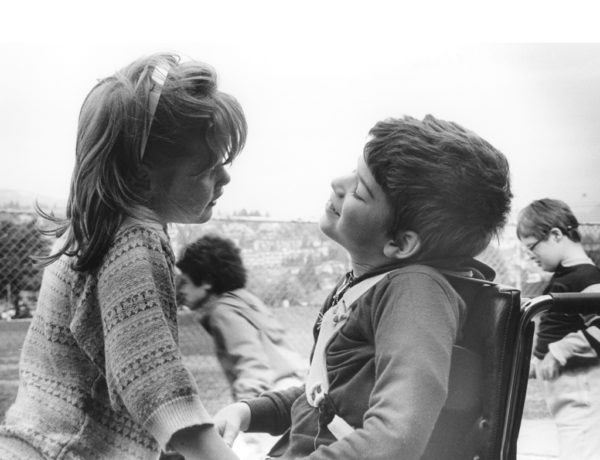IN THE NAME OF JESUS
“I’m listening.” Those are my favorite words—words repeated frequently by a friend of mine. What else can a person say when they can’t fully understand what you’re going through? When they care but they can’t help in practical ways. When they know that advising wouldn’t be helpful.
When a friend is unable to find words of comfort, to have them tell you they’re listening is probably the most comforting of all. It’s an offer to stay with you as you go through the challenges you might be facing. They let you know you’re not alone. Very little comforts me as much as those words. I sense the love of God in them.
Such a person is a godly friend indeed. To have a friend like that is a great gift. Sometimes I ask, “Who am I to have deserved such a gift?”
The story of the friendship David offered to the crippled man, Mephibosheth comes to mind.
Mephibosheth ate at David’s table like one of the king’s sons.
. . . and he was crippled in both feet.
Mephibosheth bowed down and said,
“What is your servant, that you should notice a dead dog like me?”
2 Samuel 9:11,13, 8
I see such beauty in the story of the disabled Mephibosheth. Because he was his friend Jonathan’s son, King David accepted him and cared for him.
Why do I like this story? I think it’s because many of us will see ourselves—our broken selves—in Mephibosheth. And I see God and his love and compassion in the person of David.
Many of us have a lack of healthy self-worth. Some reading this may have disabilities that cause us to be disrespected. As a result, we might feel small and lack self-confidence. God does not intend us to walk through life that way. He doesn’t want us thinking we’re not as good as others. He sees us as worthy as anyone, even though it may be difficult to live a normal life.
Many believe that a person’s worth is determined by what he does—by what he contributes to his community. They think that a person who does good is worth more than a person who does not do much for others.
In one moment, Mephibosheth had gone from eating dog food to eating at the king’s table. What made the difference? He had not changed—he was still the same person he was before. He was still crippled, could not take up a trade, could not wield a sword or lead a team of oxen in the field. In the eyes of the world he was worthless. But in the eyes of the king, he was more.
Mephibosheth was worthy, not because he had any value in the eyes of the world, but simply because he was seen in light of the relationship between David and Jonathan. He was worthy because he was Jonathan’s son. He was worthy because of the price of friendship that had been paid between David and Jonathan.
And we? The same is true for us. We are worthy because of the price God paid for us. Through Jesus, we can have a relationship with God. We are loved and we belong.
Mephibosheth asked why the king would notice someone like him and we might ask the same. We should not take his gracious treatment for granted. Listen to the way Charles Spurgeon saw it: “Let it be published in heaven as a wonder, that the Lord Jesus should set his heart’s love upon such as we are.” It is a wonder, isn’t it?
My prayer is that God might give all of us a godly friend like David was to Mephibosheth. And that he would give us all a friend who will tell us, “I’m listening,”
marja
This has been Post 21 of the series, In the Name of Jesus. Go to Part 22, Insecurity.

Leave a Reply